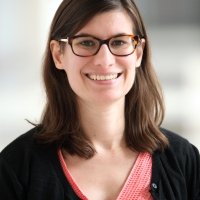Moscow Conference on the Global History of Sport in the Cold War

Subscribe to the Sport in the Cold War podcast on iTunes and Soundcloud
International historians gathered in Moscow to attend the first in a series of three conferences, Spanning and Spinning the Globe: The Global History of Sport in the Cold War, hosted by the German Historical Institute of Moscow.
Dr. Christian Osterman (second from left) and Laura Deal (speaking) at the international conference in Moscow.
Sport has long been linked with politics, but never more so than during the Cold War. In this highly precarious time, nations and peoples around the world used sport to promote their political, social, and economic development. The media promoted mega-events between capitalist and Communist athletes as surrogates for diplomatic and military tension. Yet, for all its obvious ideological freighting, sport in this period reflected a complex integration of commerce, celebrity, trans-regional and trans-national fan loyalties. It revealed different and shifting notions of race, class and gender (often within a single nation), and the uneasy mapping of sports and geopolitical allegiances could even make bitter rivals of strategic partners.
The project has assembled a total of seventy-seven presenters and discussants from many nations and humanistic disciplines to break down and scrutinize the common master narrative of East-West sporting tensions. The presenters are all currently engaged in novel and intensive research using primary sources from an extensive range of archives and other repositories. Roughly half are young scholars with emerging work of considerable significance to whom the project will give the opportunity to interact with established colleagues. Over the course of three workshops, they will seek to: (a) move beyond the role of the state to interrogate the differences and commonalities between the systems brought about by gender, the body, commerce and celebrity; (b) transcend the hitherto dominant focus on the USA and USSR by examining other key nations as well as sports outside the Olympic arena that opened up different nodes of confrontation and rivalry; (c) provide the first, comparative and archive-based examination of the much cited but little understood Boycott Olympics of Moscow 1980 and Los Angeles 1984. In contrast to the small body of previous scholarship on the topic, presentations will cover all five continents and a plenitude of sports. The project is led by three directors: Professor Robert Edelman (UC San Diego), Professor Christopher Young (University of Cambridge), both of whom have considerable experience in the field of sports history, and Dr Christian Ostermann, Director of the Woodrow Wilson Center’s highly respected Cold War International History Project. They are supported by a steering committee of nine scholars from the US, the UK, Germany and Russia. Workshops will be hosted over a three-year period at, and with the generous financial and institutional support of, the Jordan Center for Advanced Russian Studies at New York University (2015), the German Historical Institute in Moscow (2015), and Pembroke College, University of Cambridge (2016). There will be two forms of output. Papers will be reworked and assembled into two volumes, to be published (pending peer review) by the University of California Press and Stanford University Press. In addition, an open access internet portal on the award-winning Digital Archive of the Cold War International History Project will include detailed paper summaries, interviews with presenters, translated documents, and a timeline of Cold War sports events. Both products guarantee broad academic and public dissemination for the largest collaborative venture in sports history scholarship to date.
Guests



Cold War International History Project
The Cold War International History Project supports the full and prompt release of historical materials by governments on all sides of the Cold War. Read more
